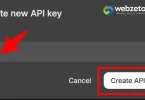Restricting search results means controlling what users can find when they search on your website. This helps you show only the most relevant or important content. It keeps unnecessary or sensitive information hidden. It can also make the search process faster and more accurate.
Customizing search functionality is crucial because it allows you to tailor the search experience to your users’ needs. By customizing, you can ensure that users find exactly what they’re looking for. This improves user satisfaction and helps keep them on your site longer.
Table of Contents
What is Restrict Search Results
Restrict Search Results refers to the practice of controlling what content appears when users perform a search on your website or platform. This involves setting rules or filters to limit the visibility of certain pages, posts, or data. The goal is to ensure that only the most relevant and appropriate content is displayed in search results. This can be particularly useful for large websites with vast amounts of content, where you want to prevent outdated, irrelevant, or sensitive information from being easily accessible.
One common reason to restrict search results is to enhance the user experience. When users search for something on your site, they expect to find the most relevant information quickly. By filtering out unnecessary or low-quality content, you make it easier for users to find what they’re looking for. This not only improves their satisfaction but also increases the likelihood that they will stay on your site longer and engage more with your content.
Methods to Restrict Search Results
There are several methods to restrict search results on your website, depending on the platform you’re using and your specific needs.
1. Using Built-In CMS Features
Many content management systems (CMS) like WordPress, Joomla, or Drupal come with built-in features that allow you to exclude certain content from search results. For example, in WordPress, you can mark specific posts or pages as “noindex” to prevent them from being indexed by search engines or from appearing in internal searches. These settings are usually accessible through the CMS dashboard and provide a straightforward way to control search visibility without needing technical knowledge.
2. Custom Coding Techniques
For more granular control, custom coding can be used to restrict search results. This might involve modifying your site’s search query functions to exclude certain content types, categories, or tags. For example, in PHP-based sites, you can alter the search query in your theme’s functions file to filter out specific content. Custom coding is a powerful method that allows for precise control but usually requires some programming expertise to implement and maintain.
3. Plugins and Extensions
Another effective way to restrict search results is by using plugins or extensions, particularly on platforms like WordPress. There are many plugins available that allow you to customize search results without needing to code. These plugins often offer user-friendly interfaces where you can easily choose which content to include or exclude from searches. They can also provide additional features like advanced filtering options, search analytics, and more.
4. Restricting Search Results via Robots.txt and Meta Tags
For search engines like Google, you can restrict certain pages from appearing in search results by using the robots.txt file or meta tags. The robots.txt file can be configured to tell search engine crawlers which pages to ignore, while meta tags like noindex can be added to specific pages to prevent them from being indexed. This method is particularly useful for hiding sensitive or low-priority content from search engine results but does not affect internal site searches.
5. User Role-Based Restrictions
Some platforms allow you to restrict search results based on user roles or permissions. For example, content can be set to only appear in searches for logged-in users or specific user groups. This is useful in membership sites or intranets where different users need access to different levels of content. Role-based restrictions ensure that only authorized users can find certain content, enhancing both security and user experience.
Restricting Search Results in WordPress
Restricting search results in WordPress is a practical way to control what content appears when users perform a search on your site.
Using WordPress Settings
WordPress offers some basic settings that allow you to exclude certain pages or posts from search results. For example, you can set a page or post to “private,” which restricts it from appearing in search results for users who are not logged in. Additionally, you can use the “Visibility” setting when editing a post to make it “Password Protected” or “Private,” effectively hiding it from general search results. However, these options are somewhat limited and primarily useful for simple scenarios.
Plugins for Restricting Search Results
There are several WordPress plugins specifically designed to help you customize and restrict search results.
- SearchWP: This plugin allows you to customize your search engine by controlling which post types, categories, and custom fields are included in search results. It provides advanced features for fine-tuning search behavior and results.
- Relevanssi: Another powerful plugin, Relevanssi, offers a range of features to modify search results, including the ability to exclude certain posts, pages, or custom post types. It also improves search accuracy by providing better relevance and full-text search capabilities.
- WP Hide Post: This plugin allows you to hide specific posts from the search results while still keeping them accessible via direct URL. It’s a simple yet effective way to manage search visibility.
Step-by-Step Guide to Restrict Search Results in WordPress
If you prefer a hands-on approach, you can manually restrict search results by adding custom code to your theme’s functions.php file.
- Access the Theme Editor: Go to your WordPress dashboard, navigate to Appearance > Theme Editor, and open the functions.php file.
- Add Custom Code: Insert code that modifies the search query to exclude specific categories, post types, or tags. For example, you might use a filter like pre_get_posts to customize the query.
- Save Changes: After adding the code, save the file. This will immediately impact the search results based on your customizations.
Restricting Search Results in Other CMS Platforms
Restricting search results is not limited to WordPress; other content management systems (CMS) also offer various methods to control what content appears in search queries.
Restricting Search Results in Joomla
Joomla offers built-in tools and extensions to manage and restrict search results effectively. A straightforward method involves controlling the visibility of specific articles or categories through Joomla’s menu settings. By adjusting the “Menu Item Type” and selecting appropriate options, you can prevent certain content from appearing in searches.
For more advanced control, Joomla offers extensions like Smart Search and Advanced Module Manager. These tools allow you to filter search results based on categories, tags, or other parameters, giving you more precise control over what content is indexed and displayed in search results.
Restricting Search Results in Drupal
Drupal known for its flexibility, provides several robust options for restricting search results. One effective approach is to use the Search API module, which allows you to create customized search pages that can exclude certain content types, fields, or taxonomies from the search index.
By combining this with the Views module, you can create highly tailored search experiences where you define exactly what content appears in the results. Additionally, Drupal’s powerful user role and permissions system can restrict search results based on user access levels. By configuring content permissions, you ensure that only authorized users can see specific content in search results, effectively hiding it from others.
Restricting Search Results in Magento
Magento, an e-commerce-focused CMS, offers several ways to manage search results, especially for online stores with large product catalogs. One method is through the platform’s catalog search options, where you can exclude certain products, categories, or attributes from search results by adjusting the “Visibility” and “Searchable” settings within the product or category setup.
For more complex needs, Magento supports the development of custom search modules, which can be integrated with the platform’s search engine to filter out specific products or content types. This allows for refined search results based on criteria such as price range, availability, or customer groups.
Restricting Search Results in Shopify
Shopify, another popular e-commerce platform, provides simpler yet effective ways to restrict search results. Shopify allows you to modify its Liquid template files to control which products or collections are included in search results. By adding specific conditions to the search results template, you can exclude certain products or collections from appearing.
Moreover, apps available in the Shopify App Store, such as Smart Search & Instant Search, offer advanced filtering options and allow you to hide specific products or pages from search results.
FAQs
Q. Can I restrict search results based on user location?
Yes, you can restrict search results based on the user’s location. This can be done using specific plugins or custom coding. The search results will only show content relevant to the user’s geographic area.
Q. Is it possible to exclude media files from search results?
Yes, you can exclude media files like images, videos, and documents from search results. This can be done using plugins or by adjusting the settings in your CMS. This helps to keep searches focused on content like posts or pages.
Q. How can I prevent search engines from indexing certain pages?
To prevent search engines from indexing certain pages, you can use a noindex meta tag or update your robots.txt file. This stops search engines from showing those pages in search results outside of your site.
Q. Can I restrict search results to only show posts from a specific category?
Yes, you can limit search results to show posts from a specific category. This is typically done by adjusting search query settings or using a plugin that allows category-specific search filters.
Q. Is there a way to restrict search results to specific user roles?
Yes, you can restrict search results based on user roles. This means certain content will only appear in searches for users with specific permissions, like admins or registered members. This can be managed through role-based access settings or custom coding.
Conclusion
Restricting search results is essential for managing what users see on your website. By controlling search visibility, you can ensure that only relevant and appropriate content appears. This improves the user experience and helps keep sensitive or outdated information hidden. Whether you use built-in CMS features, plugins, or custom coding, there are various methods to achieve this depending on your platform.
Each CMS, from WordPress to Joomla, Drupal, and Magento, offers different tools and techniques for restricting search results. Understanding these options allows you to tailor the search functionality to your needs, making your site more user-friendly and secure.














